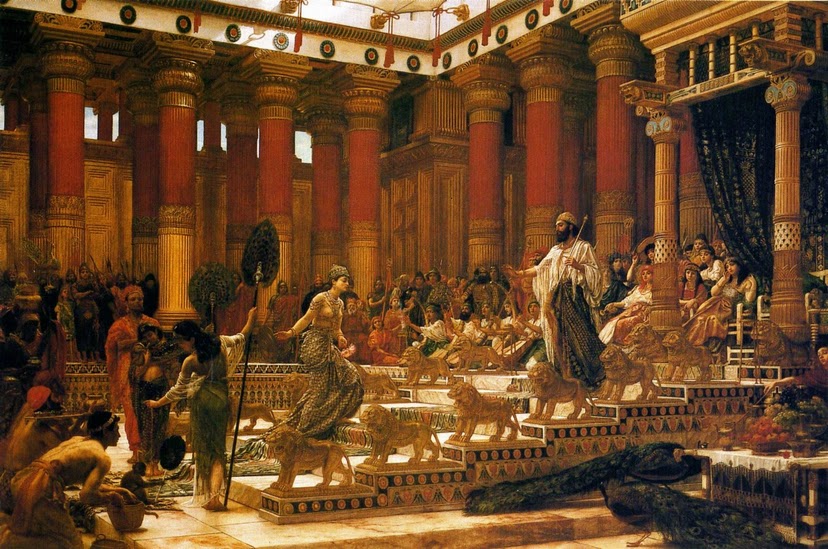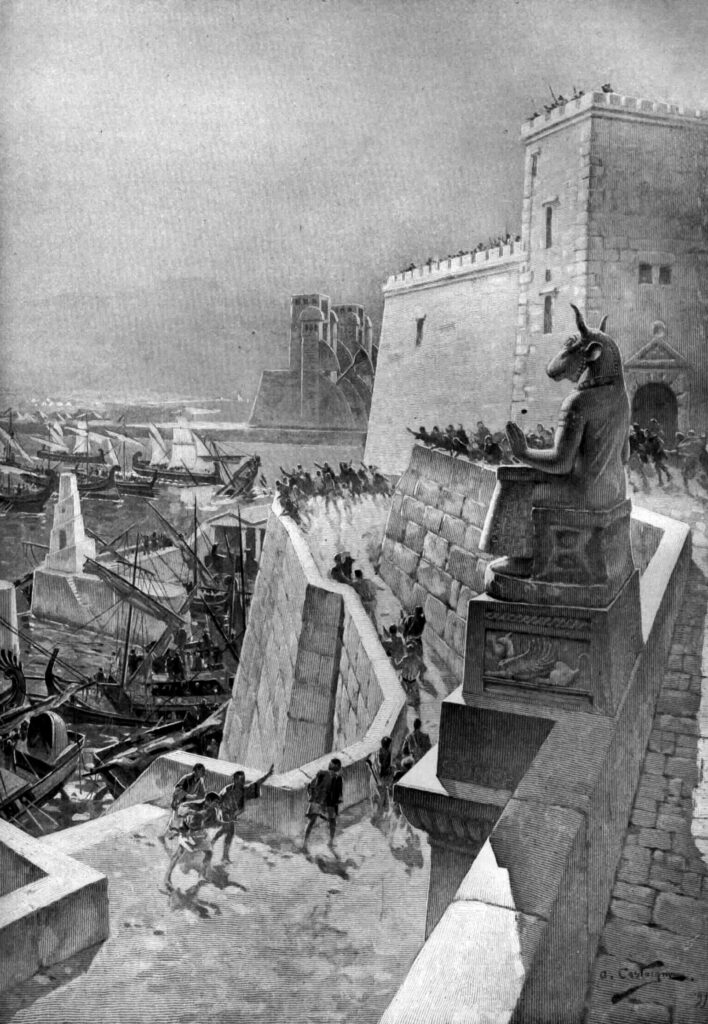Zyirra of the Thousand Gods
The island city-state Zyirra of the Thousand Gods once was the capital of an empire under the patronage of Surkat the Conqueror: the God-King, the devil-god of rivers and shallows, lakes and the underworld, Father of Furies, patron of sailors, traders, and soldiers. Surkat is said to be both consort and rival of Tiamat, the dragon-mother, queen of the deep seas and primordial Chaos, embodiment of grasping greed, power and vengeance.
When the Samarran kingdoms overthrew the Zyirran Empire, Samarran priests and paladins crippled the power and influence of the cult of Surkat and built new temples to their gods atop the ruins of the old temples. The Samarrans salted the mainland fields that once fed the city, forcing Zyirra to trade with Samarra for crops. Even Zyirra’s legendary docks and fisheries had to be repaired and rebuilt. The Samarran priest-king of Zyirra today is Akila Utusham, brother to the distant high king of Samarra.
A Holy Guard of Samarran soldiers and priests has remained in Zyirra, generation after generation, to enforce the rule of the priest-king Akila Utusham. Samarran rule of Zyirra is uneasy and often corrupt. The church of Surkat thrives, its temples allowed to be rebuilt. Its most passionate adherents blame their the empire’s fall on their ancestors who abandoned their bloody-minded god. Those Zyirrans despise the Samarran occupiers and often fight them.

General Features of Zyirra
Zyirra has the following general features:
Terrain: Narrow, twisting, uneven streets. Looming buildings of crumbling stone. Night-black alleys. Gutters slick with filth.
Weather: Hot and often muggy, even in the endless shade of the city. A brilliant sun lights up the blue sea but rarely makes it to the city streets. Occasional rain, usually mild but sometimes savage.
Sights: The half-light of the noon sun filtering down the narrow gaps between buildings. A rare stab of light when the sun stands just overhead for an instant. Merchants in shops and stalls offer goods and vices from every part of the known world. Beggars, thieves and footpads lurk in the deep shadows, watching for opportunities. Shrines to gods and spirits, known and unknown, stand in alcoves and gaps however small.
Sounds: The loud exhortations of competing and ruthless merchants. The pleas of beggars and pitiful children. Fragments of chanted prayers in every language from shrines and unseen temples. The raucous squawks of gulls that lose their way and are brought down by flung stones. The bells that warn of a person of wealth coming through and the growls of guards for those who fail to make way.
Languages: The Common tongue is the language both of Zyirra’s Broken Empire and the far-flung Samarran kingdoms. Nevertheless, accent and dialect clearly identify a speaker’s origin unless the speaker makes a Charisma (Deception) roll against a listener’s passive Insight.
Appearance: Zyirrans and Samarrans look much alike, most of them swarthy with thick dark hair. Zyirrans tend to wear colorful tunics, trousers, and cloth hats. Those who wear armor wear it dyed or painted brightly. Samarrans tend to wear loose-fitting, multicolor robes, with hoods to protect against unwanted spills from above. People of every strange ethnicity and culture can be seen in the streets, shops, and temples.
Female Samarran Names (roll 1d10): Aea, Antum, Gamelat, Gemekala, Irkalla, Puabi, Silili, Sirnada, Taram, Urnina.
Male Samarran Names (roll 1d10): Bazi, Dadanum, Damuzi, Duququm, Ibi, Ilshubani, Kullassina, Singamil, Urnammu, Watrum.
Female Zyirran Names (roll 1d10): Adiya, Annata, Azikal, Birakan, Izezaer, Maduisur, Silba, Sursa, Tazin, Zyio.
Male Zyirran Names (roll 1d10): Abizur, Attar, Enozyir, Khalbas, Mittan, Paltar, Surattan, Sureno, Utusur, Zyiryaton.

Comments are closed.
